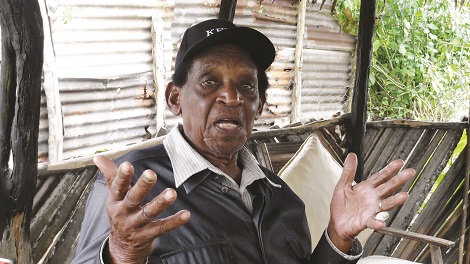 |
| Former nominated MP in the '70s John Mulli Mutambu. [PHOTO: JOE OMBUOR] |
Deep in the humid, forested jungle of Shimba Hills where malaria causing mosquitoes and tsetse flies fraught with deadly livestock diseases abound to this day, lives the perfect quintessence of Kenya’s forgotten leaders of a past era. Some are a pale shadow of the personalities they once were.
It is here where this pioneer settler, who once defended the founding President Jomo Kenyatta against a former British Prime Minister, chose for his home. The former nominated MP in the 1970s, still clings on his single-party democracy creed.
For John Mulli Mutambu, 82, and his wife of 58 years, Naomi Njeri, life in latter years has been wretched and disconsolate, cushioned only by the children they managed to bring up and educate.